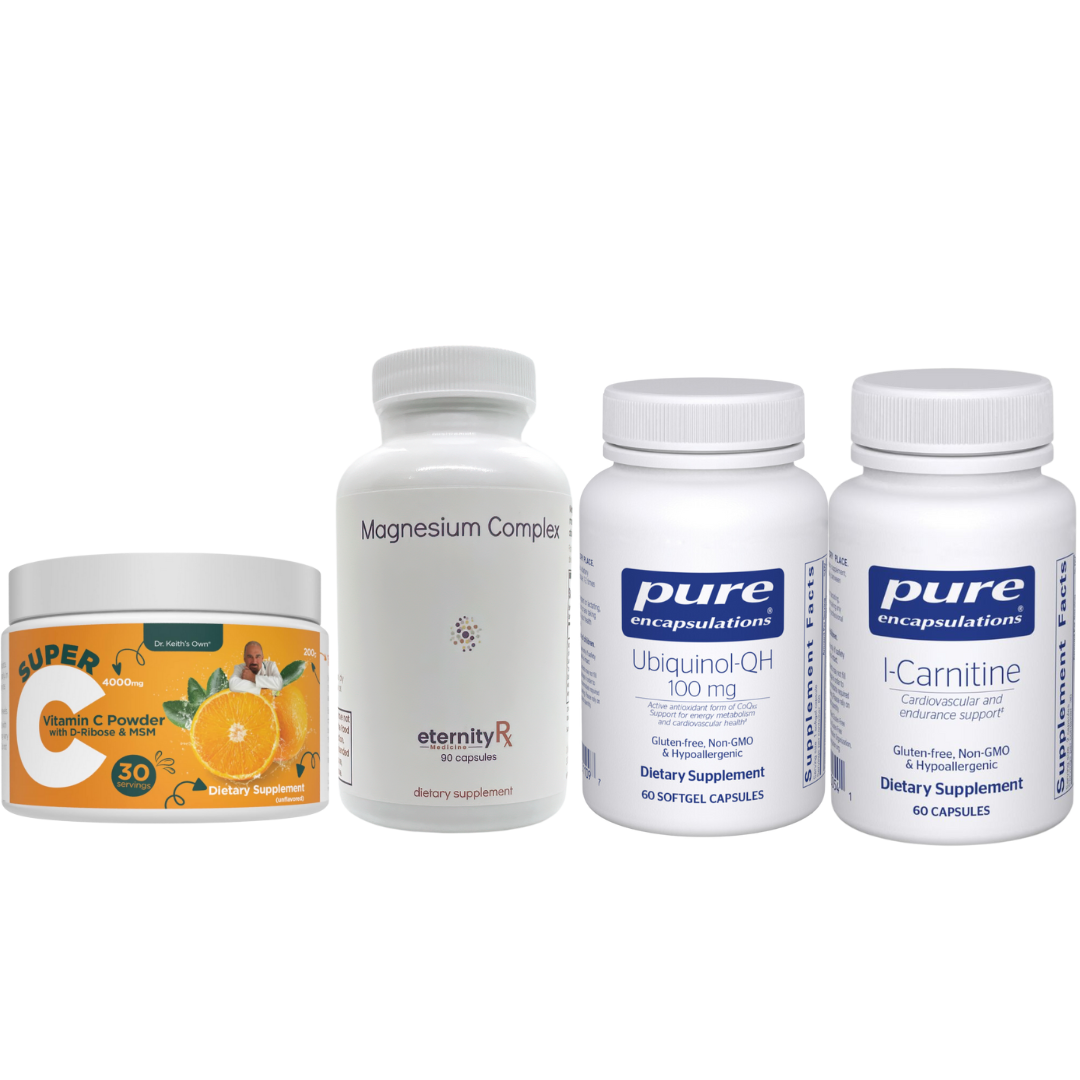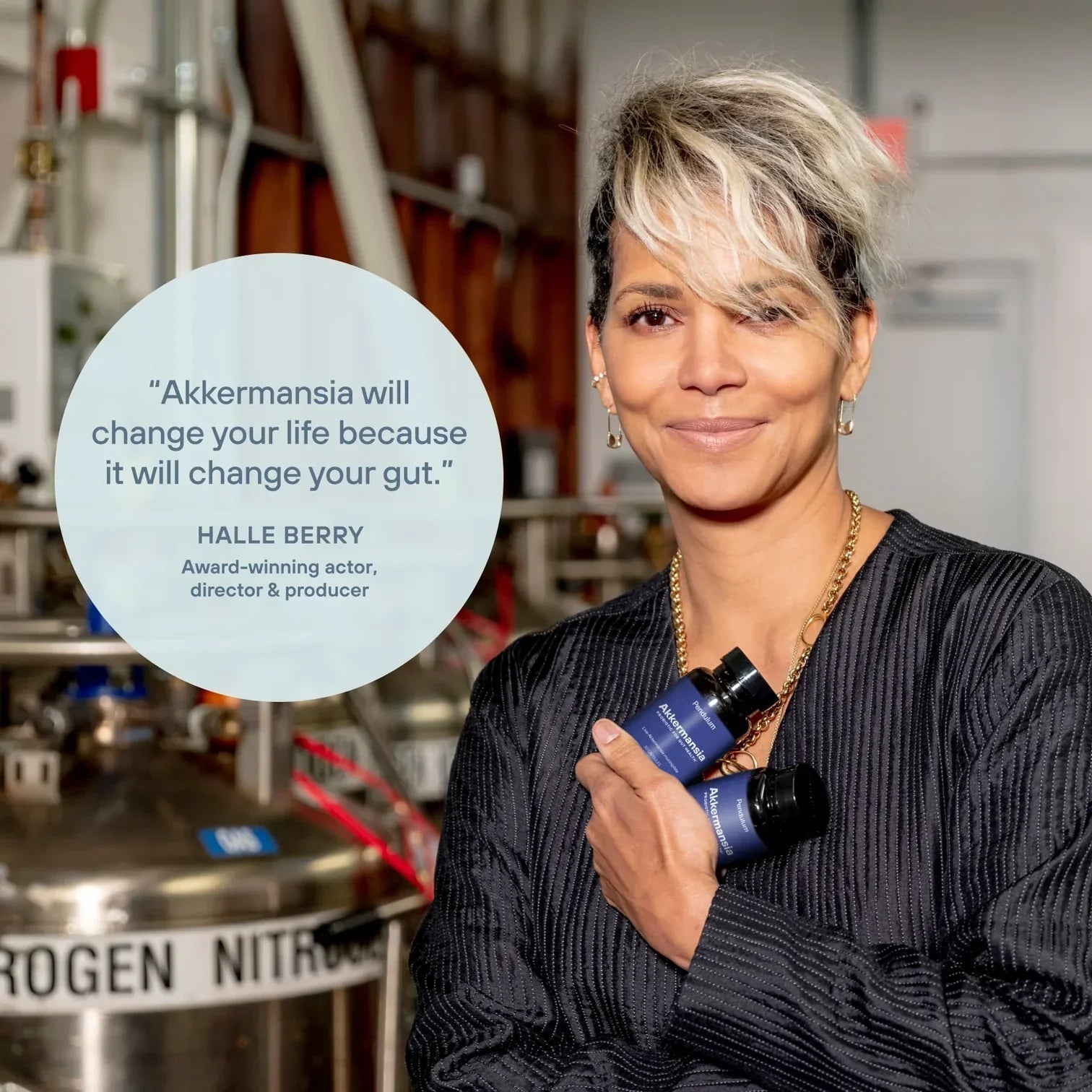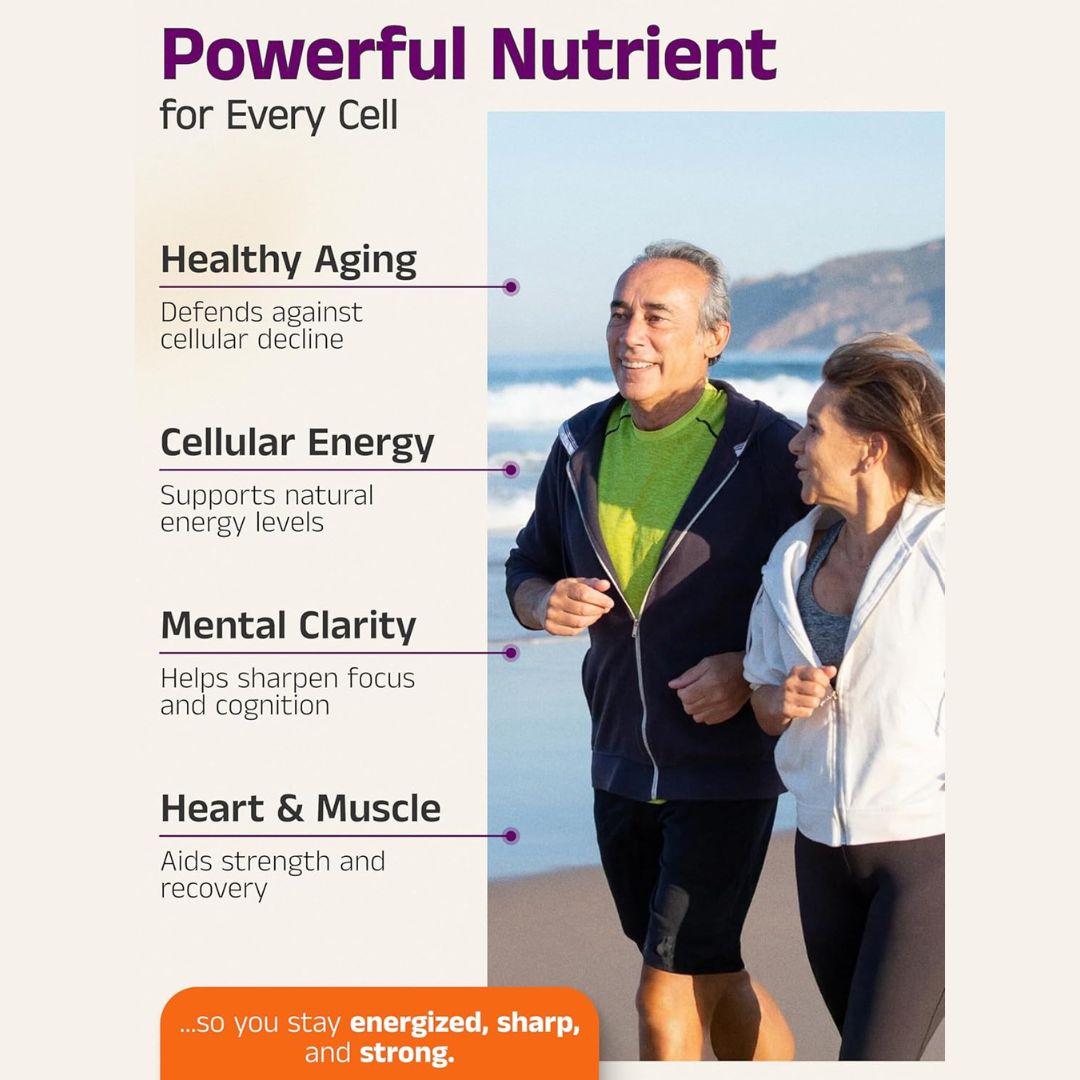Let’s get one thing straight: you don’t run on coffee, carbs or willpower.
You run on ATP, adenosine triphosphate. It’s the energy currency your cells use to fuel everything, from heartbeats and brain function to detoxification and deep sleep.
And here’s the wild part: the average adult produces about 88 pounds (40 kilograms) of ATP every single day. That’s more than the weight of an average-sized dog.
But what happens when that production slows down? Why do so many people wake up tired, hit energy crashes mid-day or feel like their body just isn’t firing on all cylinders anymore?
The answer might lie in a part of your body that’s been quietly working in the background your whole life: your mitochondria.
What Is ATP, and Why Do You Need So Much of It?
ATP is the molecule your body uses to transfer and store energy.
Imagine a little molecular battery. You make it, you use it, and then you recycle it. On average, each ATP molecule is recycled about 1,000 to 1,500 times a day.
It’s used for:
- Cellular repair
- Nerve firing
- Immune response
- Muscle contractions
- Heartbeats
- Hormone production
Without ATP? Life doesn’t happen. Literally.
So even though your body doesn’t store it in high amounts, your cells are constantly churning out fresh ATP every second to meet your energy needs.
Mitochondria: The Energy Factories Behind It All
Every cell in your body (except red blood cells) contains mitochondria. Think of them as tiny power plants where your nutrients such as glucose, fatty acids, and amino acids, get converted into usable energy (ATP).
But here's the kicker: as you age, or if you’re under chronic stress, exposed to toxins, not sleeping well, or eating poorly, your mitochondria take a hit.
The result?
- Sluggish energy
- Brain fog
- Poor recovery
- Muscle weakness
- Fatigue that sleep can’t fix
This isn’t just “getting older.” It’s a breakdown in cellular energy production.
What About Mitochondrial DNA?
Unlike the rest of your DNA, which comes from both parents, your mitochondrial DNA (mtDNA) is passed down only from your mother.
It’s a unique genetic blueprint that controls how well your mitochondria function. Over time, damage to mtDNA (from toxins, poor diet, and inflammation) reduces your ability to produce ATP efficiently.
And once that happens? The downward spiral in energy begins.
How to Support ATP Production at the Source
You can’t supplement your way out of a poor lifestyle, but the right nutrients can absolutely support and protect mitochondrial function.
Dr. Stephen T. Sinatra, an integrative cardiologist, identified a precise combo of nutrients that help energize your cells from within. He called them the "Awesome Foursome".
Here’s how they work:
1. CoQ10 (Ubiquinol Form)
This antioxidant lives inside your mitochondria and plays a vital role in the electron transport chain, where ATP is made. Ubiquinol is the active, ready-to-use form, and is especially important after age 40.
- Helps recycle other antioxidants and fight free radical damage.
2. L-Carnitine
Acts as a transport shuttle, moving fatty acids into the mitochondria where they can be used for energy. Without it, your ability to burn fat efficiently drops.
- Supports heart health, endurance, and recovery.
3. D-Ribose
A naturally occurring sugar that forms the backbone of ATP molecules. Your cells need it to build and replenish ATP, especially under stress or after intense activity.
- May improve energy in people with chronic fatigue or heart conditions.
4. Magnesium Complex
The spark plug for your mitochondria. Magnesium is involved in over 300 enzymatic reactions, including many that regulate ATP synthesis.
- Most adults are deficient, especially under chronic stress.
What Happens When ATP Production Fails?
When your body can’t make enough ATP, it prioritizes survival over performance. This shows up in symptoms like:
- Mental fatigue and low mood
- Hormonal imbalances
- Poor sleep quality
- Muscle aches
- Reduced focus and memory
Over time, poor mitochondrial health is also linked to:
- Cardiovascular disease
- Neurodegenerative conditions
- Metabolic syndrome
- Accelerated aging
This is why proactive support matters. You’re not just chasing more energy, you’re protecting long-term cellular health.
You’re Only as Energized as Your Cells Are
If you’ve been feeling like your body’s stuck in second gear, or your mind is foggy despite a “healthy” lifestyle, it’s time to zoom in at the cellular level.
Boosting ATP isn’t about loading up on caffeine or sugar. It’s about making sure your mitochondria have the raw materials they need to do their job.
And that’s exactly what Dr. Sinatra’s protocol delivers.
Want to Support Cellular Energy from the Inside Out?
The Mitochondrial Support Bundle brings together the exact four nutrients your cells use to generate ATP efficiently and sustainably:
- CoQ10 (Ubiquinol)
- L-Carnitine
- D-Ribose (in Vitamin C Powder)
- Magnesium Complex
No guesswork. Just proven building blocks to fuel your body the way nature intended.
→ Discover the bundle. Reclaim your energy. Support your mitochondria.




